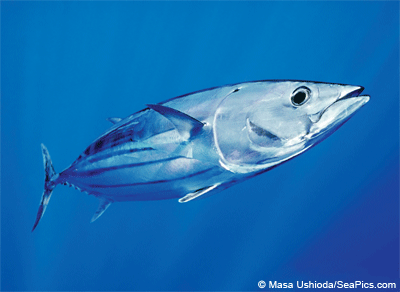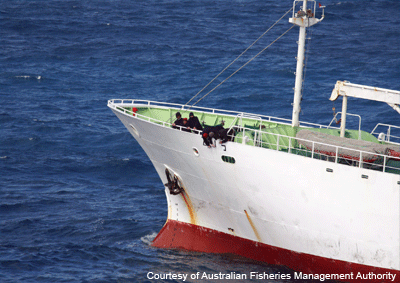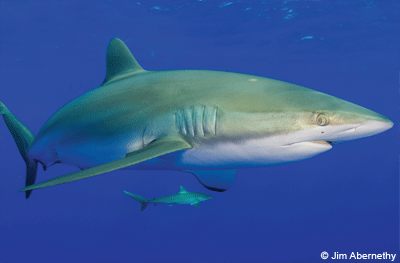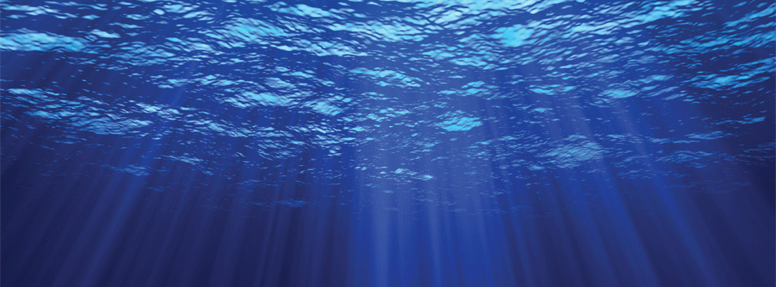Recommendations to the 10th Regular Session of the WCPFC
Overview
The Western and Central Pacific Fisheries Commission (WCPFC) aims to ensure the long-term conservation and sustainable use of the fish stocks, including tuna and sharks, in the western and central Pacific Ocean. The WCPFC has a unique and important responsibility as custodian of the world's largest tuna fishery in an area covering 20 percent of the Earth's surface.
Sustaining healthy fisheries in this region requires strong conservation and management actions through joint commitments and strict compliance. Unfortunately, the Commission's Members, Cooperating Non-members, and Participating Territories, known collectively as CCMs, have been unable to take the actions needed to ensure the sustainability of highly migratory fish populations.

This year's Commission meeting is critical to the future of bigeye and Pacific bluefin tuna, as well as many shark species.
The Pew Charitable Trusts calls on governments involved in the WCPFC to agree to take the following critical actions:
- End overfishing in tuna fisheries and strengthen management to ensure sustainability.
- Strengthen controls so as to end illegal, unreported, and unregulated (IUU) fishing.
- Adopt conservation and management measures to protect sharks.
Recommendations
End overfishing in tuna fisheries and strengthen management to ensure sustainability
This year, the WCPFC must demonstrate that it can manage the world's largest tuna fishery responsibly by implementing precautionary reference points, acting to end overfishing of bigeye tuna, and moving to rebuild the severely depleted Pacific bluefin population.
Strengthen controls against IUU fishing
IUU fishing remains a threat in the WCPFC Convention Area. To enhance compliance with CMMs, the Commission should require that vessels fishing in its waters have mandatory, unique, and permanent identification numbers. The WCPFC also should adopt a new measure on port State controls.

The International Maritime Organization (IMO) number is an essential element of any system to ensure compliance with fisheries laws and to aid safety and security at sea. The WCPFC should improve the transparency of fishing vessels' activities by requiring that those licensed to fish in the Convention Area have an IMO number.
Adopt CMMs to protect sharks
The latest stock assessment shows that the silky shark (Carcharhinus falciformis), a low-productivity species, is in an overfished state in the WCPFC Convention Area and that overfishing continues. Given this evidence, the WCPFC should follow the best practice established by the Commission when it prohibited the retention of oceanic whitetip sharks. It is essential that the WCPFC prohibit the retention on board, transshipment, storage, and landing of silky sharks this year.

This will be most effective in combination with improved shark bycatch-mitigation measures to prevent initial catch of this and other vulnerable shark species. Among the most effective are the use of non-entangling FADs and controls on the use of wire leaders, shark lines, and shark bait. We recommend that the WCPFC mandate the use of non-entangling FADs and prohibit the use of wire leaders, shark lines, and shark bait.
Action is also needed on the management of blue sharks (Prionace glauca), given the high levels of catch in the WCPFC Convention Area—about 40,000 tonnes annually over the last decade—and uncertainty on the status of the stock. Given the WCPFC Scientific Committee's advice to follow the precautionary approach10 in setting management measures while stock assessment work continues, blue shark catch levels should be limited at this year's WCPFC meeting to recent year averages.
To view the complete recommendations and endnotes, download the PDF below.







